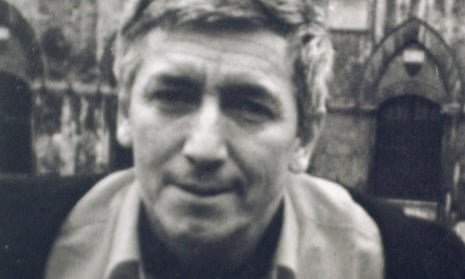For 26 years the assassin’s work has been one of the most ubiquitous and chilling episodes of the cold war, but his identity one of its enduring secrets.
The Bulgarian dissident Georgi Markov, 49, felt a sharp prick in his leg as he waited for a bus in 1978 on Waterloo Bridge. An opposition activist and BBC broadcaster living in political exile since 1969, Markov was an acute irritant to the authoritarian communist government of Bulgaria. He had been receiving warnings that his life was in danger, but thought little of the pain in his thigh, and continued on his way to work.
Yet amid the jostling commuter crowd was an assassin from the Bulgarian secret services with a specially adapted umbrella. He used it to push beneath Markov’s skin a deadly 1.7mm-wide pellet containing the poison ricin.
Three days later Markov was dead, and the identity of his killer a mystery of the dark arts of cold war espionage.
But now a Bulgarian journalist, Hristo Hristov, has named one of the Soviet era’s most renowned assassins as Francesco Gullino, a Dane of Italian origin who travelled to Britain under the le Carré-esque cover of an antiques salesman.
“His name was in the archive of Bulgaria’s national intelligence service,” Mr Hristov said yesterday. “It took me six years to find.”
A senior Bulgarian government official has reportedly confirmed the authenticity of the documents that name Mr Gullino, serialised recently in the Bulgarian daily Dnevnik. Hristov will publish a book on his findings.
Mr Gullino travelled Europe in an Austrian-registered caravan, and came to Britain to “neutralise” Markov on the orders of the Bulgarian secret services, the Durzhavna Sigurnost. The murder was sanctioned by Todor Zhivkov, the country’s fanatically pro-Soviet ruler.
Mr Gullino had been arrested smuggling drugs and currency on the Bulgarian border in 1970, and was recruited to Bulgaria’s security services. Working under the codename Agent Piccadilly, he flew to London three times in 1977 and 1978, leaving the capital the day after Markov was hit by the umbrella, for Rome, where he met his handler.
The Bulgarian files confirm he was their only agent in London at the time, according to Hristov.
A Scotland Yard spokeswoman said yesterday the “particularly long and complex investigation” into the murder remained open and they were keen to bring the killer to justice, although she declined to comment on the apparent identification of one of their most elusive targets.
On February 5 1993 Mr Gullino was briefly detained in Copenhagen where British and Danish detectives questioned and fingerprinted him. He admitted espionage, but said he had no connection to the Markov killing, and was later released because Denmark had no case against him. He sold his Copenhagen house and left the country that year. Hristov believes he is still alive.
Hristov said he had last met Agent Piccadilly in 1990, and in 1993 declined a request from Denmark for further information on him.
In 1992 General Vladimir Todorov, the former Bulgarian intelligence chief, was sentenced to 16 months in jail for destroying 10 volumes of material relating to the assassination.
General Stoyan Savov, the deputy interior minister who ordered the murder, killed himself before facing trial over the cover-up of the assassination.
After Zhivkov’s regime collapsed in 1989 a stack of the special umbrellas was found in the interior ministry.
